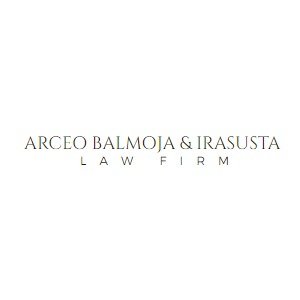Best Public-Private Partnerships (PPP) Lawyers in Bulacan
Share your needs with us, get contacted by law firms.
Free. Takes 2 min.
List of the best lawyers in Bulacan, Philippines
About Public-Private Partnerships (PPP) Law in Bulacan, Philippines
Public-Private Partnerships, commonly referred to as PPP, are collaborative agreements between government entities and private companies to finance, build, and operate projects typically meant for public use. In Bulacan, Philippines, PPPs are often used for infrastructure projects such as roads, water supply systems, public markets, and renewable energy facilities. The goal is to leverage the strengths of both sectors - public oversight and private sector efficiency - to deliver essential services to the community. Bulacan, as a rapidly developing province near Metro Manila, embraces PPPs to accelerate development and address growing infrastructure needs while mitigating the constraints of limited government resources.
Why You May Need a Lawyer
Engaging in a PPP project in Bulacan involves navigating complex laws and regulations. You may need a lawyer in the following situations:
- Drafting, reviewing, or negotiating PPP agreements and contracts
- Ensuring compliance with both national and local government requirements
- Protecting your intellectual property and proprietary technologies involved in projects
- Participating in PPP bidding, procurement, or competitive selection processes
- Understanding possible tax incentives and exemptions for your project
- Addressing disputes or claims arising between partners or with government agencies
- Securing permits, licenses, and environmental clearances for construction and operation
- Navigating foreign ownership restrictions or investment eligibility
- Advising on dispute resolution mechanisms outlined in PPP contracts
- Understanding the grant of rights, obligations, and risk-sharing provisions
Given the high value and public interest in these projects, having qualified legal counsel is crucial for protecting your interests and ensuring the smooth execution of your PPP.
Local Laws Overview
PPPs in Bulacan are governed by both national and local legislation. The principal national law is Republic Act No. 6957 as amended by Republic Act No. 7718, also known as the "Build-Operate-and-Transfer (BOT) Law." This law provides the general framework for implementing PPP projects throughout the Philippines.
At the local level, Bulacan has its own guidelines and processes in consonance with national policies. The Province of Bulacan may enact ordinances or issue executive orders outlining specific procedures for solicited and unsolicited proposals, including local project selection, feasibility studies, risk allocation, and procurement. In many cases, the Sangguniang Panlalawigan (Provincial Board) of Bulacan must approve major PPP contracts.
Key aspects of PPP laws in Bulacan include:
- Requirement for transparent and competitive selection or bidding processes
- Clear definition of project scope, duration, and financing structure
- Mandatory public consultation for large-scale projects
- Risk-sharing provisions between public and private sector participants
- Environmental and social safeguards to protect communities and natural resources
- Provisions for step-in rights, dispute resolution, and government guarantees, where applicable
- Eligibility criteria for private sector participants, including minimum track records and financial capacity
Familiarity with these laws and guidelines is essential for anyone considering participating in a PPP venture in Bulacan.
Frequently Asked Questions
What is a Public-Private Partnership (PPP) in Bulacan?
A PPP in Bulacan is an arrangement where the provincial or local government partners with a private company to deliver public infrastructure or services. These projects can include roads, water systems, public buildings, and more.
Who can participate in PPP projects in Bulacan?
Both local and foreign private entities may participate, subject to certain eligibility requirements under national and local laws. Participants must demonstrate technical expertise, financial capability, and compliance with applicable laws and guidelines.
What law governs PPP projects in Bulacan?
PPP projects in Bulacan are primarily governed by the national BOT Law and its implementing rules and regulations, as well as relevant local ordinances or executive issuances by Bulacan’s provincial government.
How are PPP projects selected or approved?
Projects are generally selected through a government-initiated (solicited) process or proposed by a private sector proponent (unsolicited). All proposals are subject to rigorous evaluation, including feasibility studies, public consultations, and approval by local legislative bodies.
What are the common types of PPP arrangements?
Common types include Build-Operate-and-Transfer (BOT), Build-Transfer-and-Operate (BTO), Build-Lease-and-Transfer (BLT), Operate-and-Maintain (O&M), and Joint Venture agreements. Each type has distinct risk and revenue-sharing terms.
Are there tax incentives for PPP projects in Bulacan?
Yes, certain PPP projects may qualify for tax incentives and other privileges under both national investment laws and local ordinances, depending on the nature and scale of the project.
How are disputes between public and private partners resolved?
Disputes are typically addressed via alternative dispute resolution methods, such as arbitration or mediation, as stipulated in the PPP contract. Philippine courts may also have jurisdiction in certain cases.
Can foreign companies invest in PPPs in Bulacan?
Yes, subject to constitutional restrictions on ownership of certain land and sectors. Foreign investors may participate, especially in infrastructure and utilities, with legal advice essential to ensure compliance.
What permits or approvals are needed for a PPP project?
Permits may include environmental clearances, business permits, construction permits, and sector-specific licences, as well as approval from local government units and national agencies, depending on the project type.
Where can I get more information or assistance with PPPs in Bulacan?
Legal professionals with expertise in PPPs, the Bulacan Provincial Government, and national government agencies like the Public-Private Partnership Center of the Philippines can offer assistance and resources.
Additional Resources
For more information or support on Public-Private Partnerships in Bulacan, the following resources may be helpful:
- Bulacan Provincial Government: The official provincial office, particularly the Provincial Planning and Development Office (PPDO), handles local PPP projects.
- Department of the Interior and Local Government (DILG) Bulacan: Assists with compliance and coordination among local government units.
- Public-Private Partnership Center of the Philippines: Provides comprehensive guides, templates, and updates on PPP laws and best practices.
- Department of Trade and Industry (DTI) Bulacan: Offers support to potential investors and information on incentives.
- Legal professionals: Local law firms and practitioners specializing in public procurement, contracts, and infrastructure law.
Next Steps
If you are considering involvement in a Public-Private Partnership in Bulacan or require legal advice, follow these recommended steps:
- Clearly define your project or interest and gather all relevant documentation.
- Consult with a local lawyer who specializes in public infrastructure, PPP law, or government procurement.
- Contact the Bulacan Provincial Government or the PPP Center to understand ongoing and upcoming projects, as well as procedures for proposal submissions.
- Attend public consultations or orientation seminars to familiarize yourself with the process and expectations.
- Review all legal documents thoroughly and verify compliance with national and local laws before finalizing agreements or investments.
Expert legal guidance will help ensure a smooth experience and protect your interests throughout the PPP process in Bulacan.
Lawzana helps you find the best lawyers and law firms in Bulacan through a curated and pre-screened list of qualified legal professionals. Our platform offers rankings and detailed profiles of attorneys and law firms, allowing you to compare based on practice areas, including Public-Private Partnerships (PPP), experience, and client feedback.
Each profile includes a description of the firm's areas of practice, client reviews, team members and partners, year of establishment, spoken languages, office locations, contact information, social media presence, and any published articles or resources. Most firms on our platform speak English and are experienced in both local and international legal matters.
Get a quote from top-rated law firms in Bulacan, Philippines — quickly, securely, and without unnecessary hassle.
Disclaimer:
The information provided on this page is for general informational purposes only and does not constitute legal advice. While we strive to ensure the accuracy and relevance of the content, legal information may change over time, and interpretations of the law can vary. You should always consult with a qualified legal professional for advice specific to your situation.
We disclaim all liability for actions taken or not taken based on the content of this page. If you believe any information is incorrect or outdated, please contact us, and we will review and update it where appropriate.











